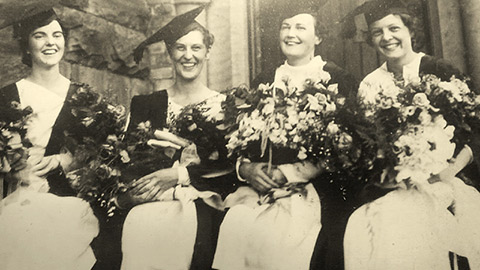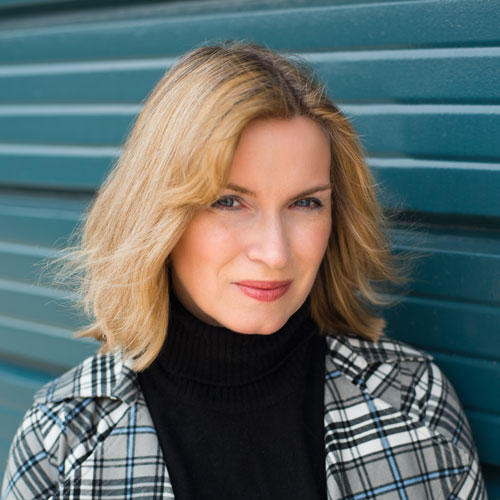Some people merely live through their times, but Elizabeth “Lib” Cranston (BA 1934 UC) did what she could to change hers. Whether sourcing clothes for families during the Depression, volunteering for the Red Cross during the Second World War or helping to establish a workshop for adults with cerebral palsy in the late 1940s, Cranston made excellent use of her 102 years. Yet even though she was a professional social worker, Cranston’s valuable work went largely unpaid; in those days, the workforce was often inhospitable to married women.
Not to say that in any other way, Cranston was at all typical. Her father, a graduate in mining from U of T, worked at the silver mines in Canada’s North. Cranston grew up in Ontario’s backcountry, snaring forest animals for pocket money and skiing to school. At a society dinner party many years later, she discomfited guests with the statement: “I bet none of you can trap or skin a muskrat!”
She went on to attend U of T at a time when the majority of undergrads were male, graduating in 1934 with a degree in mathematics. Though she also earned teaching certificates from the Ontario College of Education, Cranston eventually found her true purpose volunteering for Toronto’s Neighbourhood Workers Association – originally a private charitable organization. Studying when she could, she next became certified as a social worker.
At the height of the Depression, Cranston found temporary work for families, and helped in other ways too. Her daughter Ann Blair recalls: “One family wanted to sing at church, but didn’t have any decent clothes – so my mother got her boyfriend to give one of his suits to the man.” She also found other clothes so that the family could both attend choir and take their children to Sunday school.
While her husband, Fred, fought overseas during the Second World War, Cranston collected blood for the Red Cross, and obtained her chauffeur’s license to work as a driver with the St. John Ambulance service. After Fred’s safe return, the family (including son James) settled in Toronto, where Cranston – in conjunction with old friends from U of T – helped set up Corbrook, a workshop for adults with disabilities that continues to this day. She later volunteered with the Victorian Order of Nurses, as well as Ottawa’s May Court Club.
“Every time she left a volunteer job, they had to pay someone to do it after her,” says Blair. “I said, ‘Why didn’t you ask to be paid?’” Back in the day, it was not Lib Cranston’s expectation. But if she did not profit, countless others most certainly did.
Recent Posts
U of T’s 197th Birthday Quiz
Test your knowledge of all things U of T in honour of the university’s 197th anniversary on March 15!
Are Cold Plunges Good for You?
Research suggests they are, in three ways
Work Has Changed. So Have the Qualities of Good Leadership
Rapid shifts in everything from technology to employee expectations are pressuring leaders to constantly adapt






